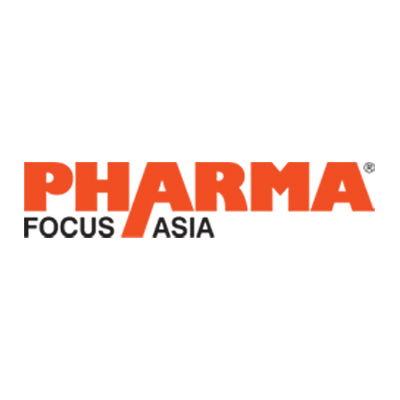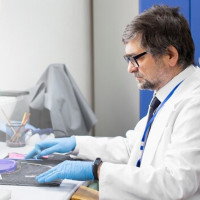Use of Steroids in COVID-19 patients

Strong 8k brings an ultra-HD IPTV experience to your living room and your pocket.
The COVID-19 infection has been affecting every one of us for the last year and continues to affect us so far through various new strains. Recently, a new variant, i.e., the Omicron of COVID-19, emerged and started spreading across the globe.The major objective today is to save as many patients as we can from the lethal effects of this virus. Reports have shown the massive increase in various inflammatory mediators in COVID-19 patients, resulting in cytokine storms and death. Steroids are well-known powerful anti-inflammatory agents available on the market for the management of various diseases. Thus, use of steroids in COVID-19 patients could have the potential to reduce mortality. However, there is a lot of confusion regarding the use of steroids in COVID-19 patients, as unnecessary use of these agents could result in various adverse drug reactions (ADRs). This article briefly presents the role of the immune system and the importance of steroids in COVID-19 patients. Further, the main findings of the recent meta-analysis done by our team are also summarized.
COVID-19 is already declared a pandemic by the World Health Organization and various new strains are also emerging across the globe and creating havoc. Vaccines are developed and showing promising results in the prevention of this infection. The role of vaccines against new strains is completely unclear so far. Further, till now, no specific drug is available for its treatment.Various classes of drugs such as specific antibiotics like doxycycline, azithromycin, etc, anthelmintics like ivermectin, anti-gout agents like cholchicine, anti-viral agents like remedesivir, favipiravir, etc, monoclonal antibodies like trastuzumab, antimalarirals like hydroxychoroquinin, anti-inflammatory agents like indomethacin, and analgesics and antipyretics like paracetamolare being used in the management of COVID-19 patients depending upon the condition of the individual. Researchers across the globe are working hard to come up with a specific molecule against this infection.
The SARS-Cov-2 enters into body and spike protein specifically attached to the angiotensin converting ezyme (ACE-2) of the host, followed by entry of the virus inside the cell. The SARS-Cov-2 is a single stranded RNA virus that uses the machinery of the host cell and make millions of copies. As we know, that immune system play a significant role in protection of body against exogenous agents. Immune system is broadly divided into two parts i.e. innate immune system and the adaptive immune system. The skin, mucous membranes, white blood cells (WBCs) are part of innate immune system, whereas T and B cells are parts of the adaptive immune system. Normally, skin protects us against harmful agents through keratin protein but if exogenous agents enter through mouth, nose etc, the mucous membrane contains specific enzymes that do degradation of these agents. Further, if exogenous agents enter blood circulation, WBCs will do the degradation and removal through the process of phagocytosis. The most important feature of the immune system is to distinguish between self and non-self. The specific type of receptors called pattern recognition receptors (PRRs) act as sensors for pathogen-associated molecular patterns (PAMPs) of exogenous agents. The Toll like receptors (TLRs) are a well-known example of PRRs. If the innate immune system is unable to handle it, as in the case of the SARS-CoV-2 infection, the adapative immune system is activated. The activation of the adaptive immune system usually takes 5-7 days for activation and is activated through the innate immune system. The antigen-presenting cells (APCs), like dendritic cells, WBCs, etc., present the processed viral protein to T cells (the adaptive immune system). The presenation of antigen is done through specific proteins, i.e., major histocompatibility complexes (MHCs) and co-stimulatory signals. The activation of T cells releases various cytokines, which result in clonal expansion. The released cytokines kill the antigen as well as activate cytotoxic T cells. The released cytokines also activate the B cells to produce antibodies. Unfortunately, in the case of SARS-Cov-2 infection, in some cases, the immune system is unable to handle and results in overactivation, which results in the release of excessive cytokines. The excess release of cytokines could result in the death of patients also.
Steroids are well-known powerful anti-inflammatory agents which are being used in the management of various diseases. Emerging studies have highlighted the importance of steroids in the management of COVID-19 patients. The regulatory authorities across the globe, such as the World Health Organization (WHO), the National Institute of Health (NIH), and the Indian Council of Medical Research (ICMR), also recommended the use of steroids in COVID-19 patients under medical supervision, as inappropriate use could result in various adverse drug reactions. The mechanism of action of steroids is well known; it act on the nuclear receptors and decrease the hyperactivation of immune response. The role of steroids in COVID-19 patients is unclear so far, as is the confusion among physicians.
Learn more: https://www.pharmafocusasia.com/articles/use-of-steroids-in-covid-19-patients
Note: IndiBlogHub features both user-submitted and editorial content. We do not verify third-party contributions. Read our Disclaimer and Privacy Policyfor details.


